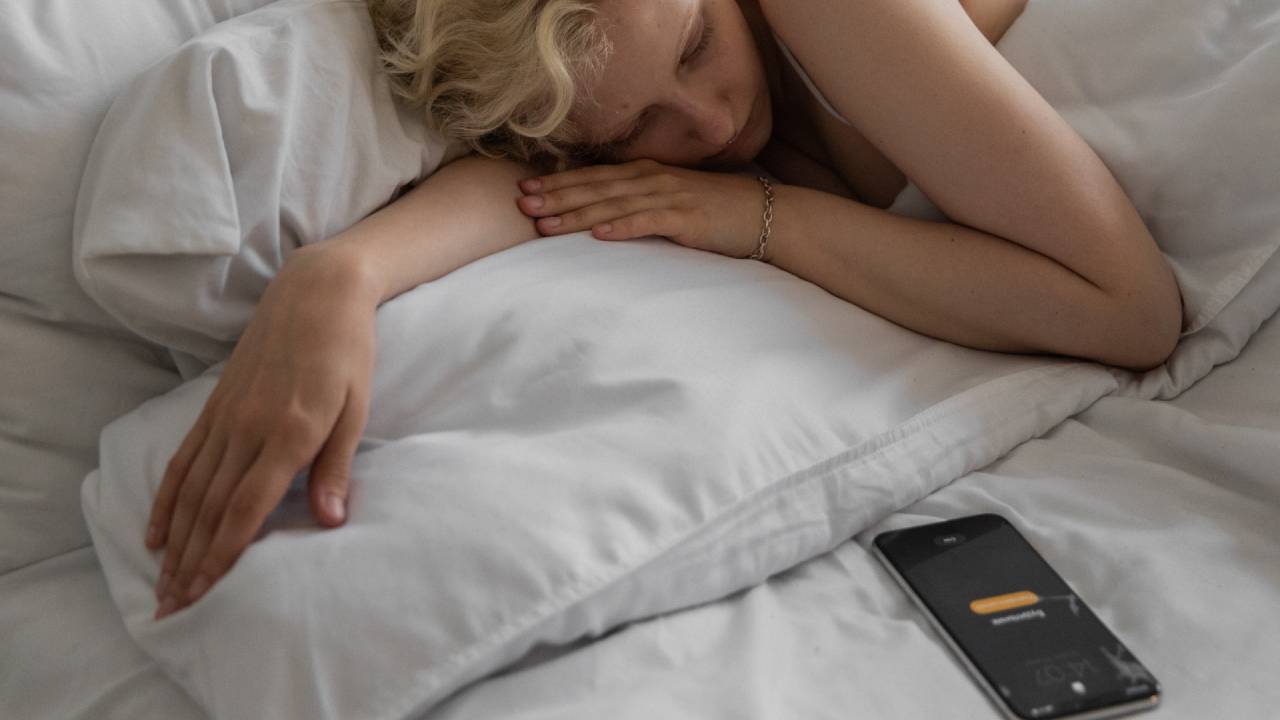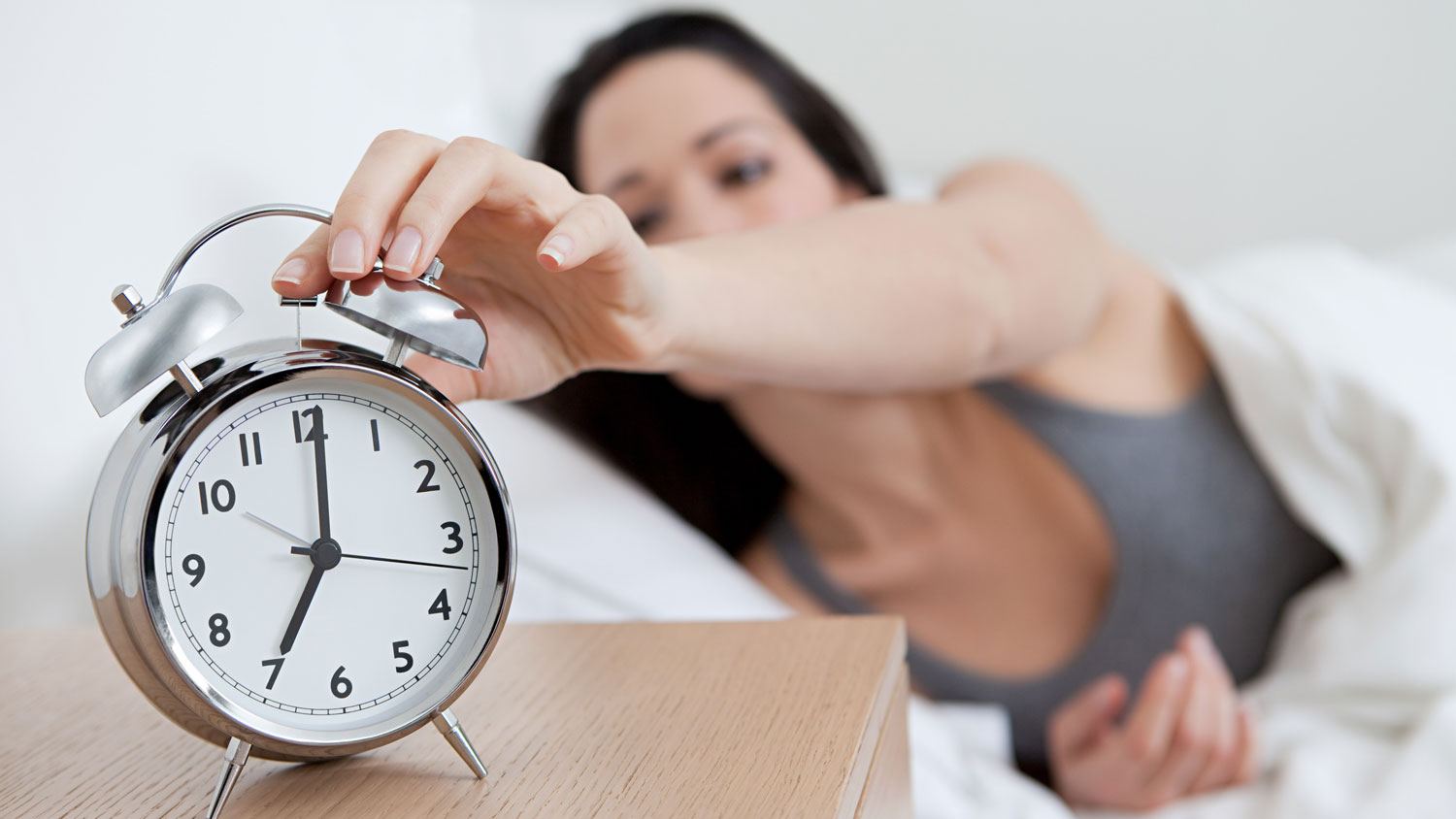New research suggests hitting the snooze button might actually be a good thing
Hitting the snooze button might not be that disruptive to your sleep, finds new study


Do you often find yourself reaching for the snooze button in the mornings? Whether you use your phone or the best alarm clocks, there’s a high possibility that you roll over in the morning and aggressively hit snooze so you can get an extra few minutes of shut eye.
I don’t know about you, but I need at least two alarms to get me up in the morning: one at 6:45am and another at 7am. Until recently, I always thought that hitting the snooze button and going back to sleep in between alarms was bad for you. But according to a recent study, snoozing might not be as bad as you think.
With snoozing as a common way to start the day, researchers at Stockholm University decided to look into this behaviour to determine its effects on sleep and overall performance the following day. The researcher was split into two studies, with the first study looking at waking habits and the second study looking more in depth into habitual snoozers.
The first study surveyed over 1,700 people, asking them about their sleep habits, like if they set multiple alarms to delay having to get out of bed. The results confirmed the researchers' suspicions that snoozing is widespread as nearly 70% of respondents said they routinely hit the snooze button.
Younger individuals and later chronotypes were more likely to snooze, and the study found that the reason for snoozing was morning drowsiness, feeling too tired to wake up and short sleep duration. 10% of respondents also commented that they set multiple alarms in the morning as they were worried they wouldn’t wake up from their first alarm.
The second study looked at 31 habitual snoozers who spent several nights in a sleep laboratory. Using polysomnography (a test that diagnoses sleep disorders), participants experience different wake-up situations to monitor the effects of snoozing. On one day, respondents were allowed to hit snooze every 10 minutes for up to an extra 30 minutes of rest, and on another day, they slept through the 30 minute window and had to get up immediately after their alarm went off.

After the subjects woke up, they answered questions on their sleepiness and mood, and performed a series of tests, including maths equations and memory tests. They also had to give saliva to measure their cortisol levels. The tests were repeated 40 minutes later and twice more during the day.
Get all the latest news, reviews, deals and buying guides on gorgeous tech, home and active products from the T3 experts
After thorough testing, the results showed that participants performed better to the testes when they could snooze their alarms. It was also found that their sleep was lighter and less restful during those 30 minutes of interrupted snoozing. However, the snoozers still got 23 minutes of sleep on average while within the snooze window, meaning they only had six minutes less than when they weren’t allowed to snooze their alarm.
Overall, there were no clear effects of snoozing on cortisol levels, which is the hormone that peaks around the time you wake up in the morning. Taking the entire night’s sleep into account, the researchers found that there was no difference in sleep quality or duration between snoozing and not snoozing. There were also no clear effects of snoozing on morning sleepiness and mood, which led researchers to conclude that a brief snooze period could help alleviate sleep inertia (that groggy disorienting feeling you sometimes get when you wake up).
So, should you snooze your alarm? This research finds that there’s no harm in doing so, but others disagree. For example, medical professionals don’t recommend snoozing or setting multiple alarms as it can disrupt the circadian rhythm, heighten your stress levels and increase your heart rate and blood pressure (find out why you shouldn’t snooze your alarm for more details). But the results of these two studies have given me peace of mind that hitting the snooze button isn’t all bad!

Beth is Home Editor for T3, looking after style, living and wellness. From the comfiest mattresses to strange things you can cook in an air fryer, Beth covers sleep, smart home, coffee machines, watches, grooming tools, fragrances, gardening and more.
In her spare time, Beth enjoys running, reading, baking and attempting craft projects that will probably end in disaster!